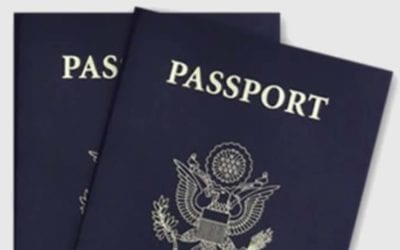Center Stage at the PhoCusWright Conference in Los Angeles brought speakers ranging from the CEOs of China’s two largest online travel agencies to Dara Khosrowshahi, CEO at Expedia, from metasearch leaders at Kayak, Skyscanner, TripAdvisor and Travelzoo to the head of IPB’s Watson Group and Darren Huston, CEO of The Priceline Group and Booking.com. It was an amazing collection of the top leaders in the online travel field.
The theme of the conference was Disruption’s Curve. With these major online players speaking, there was a lot of business as usual rather than disruption; however, every speaker managed to take a look at disruptive factors that they have been facing.
The disruption of Big Data dominated the first day of the conference when innovators presented a series of new emerging companies and divisions of established companies focused on harvesting Big Data from Website actions of travelers. Even in the major established mega company category, IBM, presenting on the final day of the conference, highlighted the activities of its disruptive Watson Group.
Watson, for those who don’t remember, is the computer that challenged and defeated America’s top Jeopardy players on the TV gameshow. That TV-gameshow publicity thrust the power of IBM’s computing to the forefront of the nation’s reality and created a new awareness of computing power, at least on the gameshow level. Now that power is being integrated into other fields, which promises to change the world.
IBM is focused on taking mere collection and analysis of Big Data to the next level where that data is fed to a supercomputer that can read, learn, partner with humans and sort amazing amounts of Big Data to solve problems that have perplexed humans for years.
Free data and restricted data
In the world of travel, there is a tug-of-war between those who crave more data and those who want to restrict it to enhance market power. Where once mantras like “content is king” were thrown around with abandon, now one hears “data is king.”
It takes two to tango. Data needs to flow freely across an industry and across all stakeholders in order to allow innovation to thrive. Unfortunately, the travel industry is facing some restrictions on airline data that is gumming up the innovation works.
Simple issues like airline pricing from airfares to ancillary fees cannot be pried free from the clutches of the airlines. Without the free flow of data, the travel industry will not be able to take advantage of the benefits that data promises to travelers and to the industry itself.
Currently, the airlines are not disclosing ancillary fees such as baggage fees, seat reservation fees, early boarding fees, check-in fees and so on, to travel agents (corner agencies, online travel agents and corporate travel agents), who sell more than half of the tickets across the country. Worse, some airlines are even restricting the display of their stripped-down airfares, sans ancillary fees, on price-comparison, metasearch sites like Hipmunk, Skyscanner, Mobissimo, TripAdvisor, Fly.com and others.
The ostensible reason can only be to restrict price comparisons across airlines. This is an airline industry-wide effort to make price shopping more difficult for consumers.
But, there are even more dangers for the aviation industry in a loss of innovation that can help both consumers with price comparisons and shopping as well as allowing the airlines to learn what their customers want. Plus, open data promises to generate more business and sales than the current management at airlines and other industries can imagine.
The IBM Vision
Mike Rhodin, the head of IBM’s Watson Group, presented a vision of Watson’s supercomputing powers being married to a world where “information is overrunning professions.” These professions range from medical fields, financial analysis and cooking to social media and travel.
Mr. Rhodin served conference listeners a world where everything is becoming digitized. Formerly “dumb” devices like washing machines and refrigerators are not getting smarter, but they are now sending digital messages about how they are running and alerting users of possible problems. Automobiles are now sending out streams of data that were not imaginable as recently as a decade ago. Automobile positions fixed by cell phones and sensors in cars tell computers where roadblocks caused by crashes and construction zones are slowing traffic. Data collected by onboard computers tell accident investigators the speed of vehicles and when brakes were applied (our cars have their own “black boxes” just like airplanes). Other data is collected that can tell automobile mechanics exactly what is going wrong with engines and transmissions and what will go wrong soon.
There is an amazing world of data being created by our surrounding world. And, when that data is merged with our own activities and our clicks and mouseovers when we move through websites, someone, somewhere is predicting what our next actions will be. Plus, some programmers say they can tell us what we will need before we are cognizant of if.
This world of “cognitive computing,” where computers are thinking alongside humans in a partnership between machines and people, will enhance the human experience, according to IBM.
To that end, IBM is now taking their Watson technology and allowing software engineers from across the computing spectrum to work together with IBM’s cutting-edge computer power.
Big Data in travel
In the travel field, Big Data is also taking the industry by storm. Predicting what travelers will be doing and what travelers want is a theme at conferences from the International Air Transport Association World Passenger Symposium held last month to this PhoCusWright conference. Heaven forbid they simply ask consumers.
Of course, Big Data is being collected. But this Big Data about customer actions needs to be combined with aggregated data from travel and tourism providers in the field. In this regard, the airlines are doing the entire travel and tourism field a disservice by restricting the free flow of data.
A look at the attendees of the PhoCusWright Conference showed that airlines have just about ignored this field. One member from American Airlines was listed as an attendee, three came from United Airlines and one attended from Hawaiian Airlines. Not one Web executive or sales executive from Delta, Southwest, JetBlue, Virgin, Spirit, Allegiant and other airlines attended.
It is a mind-boggling oversight of the importance of the online world to the aviation industry and an opportunity lost for the airlines to look into the future of travel and tourism from the point of view of thousands of stakeholders across the world.

Charlie Leocha is the President of Travelers United. He has been working in Washington, DC, for the past 14 years with Congress, the Department of Transportation, and industry stakeholders on travel issues. He was the first consumer representative to the Advisory Committee for Aviation Consumer Protections appointed by the Secretary of Transportation from 2012 through 2018.


